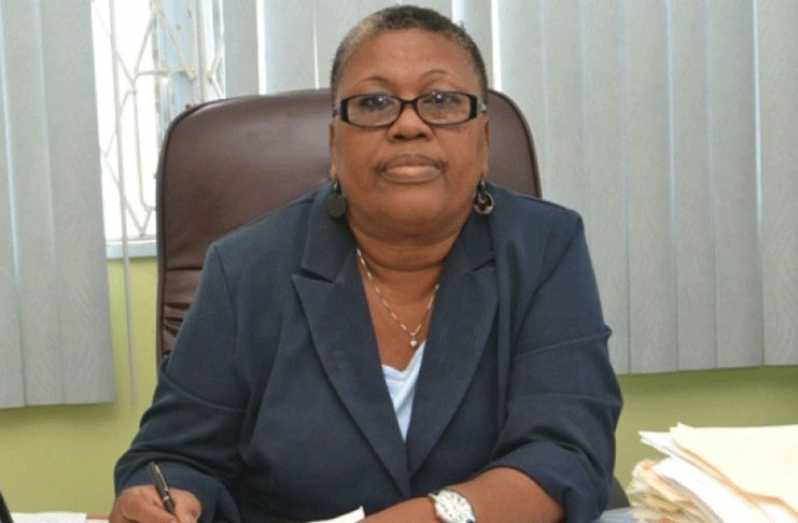More foster parents needed – CPA
“CHILDREN need affection, protection and direction,” emphasises Director of the Childcare and Protection Agency (CPA), Ann Greene, who went on to note that this provision is most ideally attended to in individualised situations, more so a family setting.
Hence, in cases whereby children need to be removed from their families for their own safety and protection, the most ideal situation for them is to be temporarily placed in another family.
Towards that end, the CPA for the past nine years has been promoting and expanding its foster care and mentorship programmes, whereby adults can sign up to give temporary homes to abused or neglected children.
The CPA and Ministry of Social Protection are currently observing November as National Foster Care Month as they promote the importance of foster care with the hope that more persons will sign onto the programme. The agency currently has 123 foster parents across the country catering to some 188 children.

The number of foster parents has been steadily increasing over the years, but with some 700 children currently in state care, Greene said the need for more foster parents is still great. The benefits of foster homes outweigh that of the other options, in which children are placed in residential care centres or “children’s homes.”
“We have these large institutions for children, but it’s not the best place for children; children need more individual attention, so we’re promoting this whole question of family-based care. We want to move away from these large children’s homes,” Greene said.
The agency has been looking at more and more ways to be able to provide individualised settings for children.
“The programme has been evolving over the years. We started out with just the foster care, but we’ve moved now to the mentorship programme and we’ve gone now to the group homes,” she explained.
With the mentorship programme, persons can sign up to be a mentor, the child remains at a child care centre, but the mentor can visit and interact with them periodically and apply for permission to take the child for short periods.
The programmes are all voluntary, but in the case of foster care, the parents are given financial assistance of $20,000 per month per child; but being a foster parent is not a job.
“It’s not that the agency is paying you to take care of that child. You would have accepted that responsibility to come on board with us, but you are given an assistance to help to care for the basic needs of the child while the child remains in your care,” explained Bonita Myles, a Probation and Social Services Officer working with the Foster Care Unit.
For some, opening up their homes to children is no easy task. Social services officers and foster parents agree that the biggest challenge to foster care is the expected trials that come with knowing just how to go about handling the children.
“The children are coming from abused and neglected backgrounds, so they come with their own challenges, and sometimes it could be a bit overwhelming for foster parents to deal with. But they do have the support. Each child in foster care has a case worker and we do provide counselling and psycho-social support to both the foster parent and children,” Ira Ali shared.
Ali, another Probation and Social Services Officer attached to the Foster Care Unit, has been there for some three years now. Aside from Myles and Ali, the unit has three other officers, including the supervisor.
Jocelyn Williams is among the 123 foster parents currently in the CPA system. Williams was among some of the first foster parents in the programme. She has fostered approximately 11 children over the years, and shows no sign of letting up anytime soon.
“My house always full,” she says as she smiles.
With six children and 14 grandchildren, it’s easy to understand Williams’s love for the business. She has fostered from babies–just days old–to teenagers, and so has seen her fair share of challenges.
“One of my biggest was when one of the children left for school and didn’t come back. When they found her something fall off my shoulder. Another young man we discussed he was going to go out for Mashramani but he didn’t come back until the next morning, saying if I didn’t want him I must send him back to the agency,” Williams recalled.
However, none of the challenges has ever deterred her. For her, the benefits far outweigh the risks, especially when she gets to be a part of the process of watching a child change into a better person.
“I had two siblings once, they came with a lot of issues, and I felt so good when the situation could’ve turned around. I got them to line up with developing good manners, developing good habits, respect and self-control,” Williams related.
Williams has cared for children for periods ranging from a few weeks to as much as 13 months; she says letting go of the children has never been an issue for her, as it’s something for which she had prepared herself even when she signed up for the programme.
Ulex Smith has been a foster mother for some four years now. She too spoke of the emotional challenges of opening up her home, but says it is something she has always wanted to do.
“My mom died when I was very young…and I always wanted someone to be there for me, so I said in the future I would try to be there for someone. And it so happened that I ended up in the area of fostering,” Smith shared.
She warned that the key to being a successful foster parent is being sure you have the capability to do it.
“Doing something like this you have to have a passion for children, a passion for people. It’s not a very easy process. Get some information, educate yourself to ensure you can go through the process and the challenges that comes with it,” she said.
To help parents and children cope with the ins and outs of foster parenting, the agency offers counselling.
“Every year we have mandatory foster parents training that every foster parent has to attend,” Ali related.
Even as the agency strives to grow its supply of foster parents, there are criteria that must be met before the CPA can clear someone to become a foster parent.
Applicants have to submit an application form, a copy of their ID and two character references, and must show that they have appropriate accommodation for a child. A medical examination, paid for by the agency, and a police background check are also done.
“We check the environment to see if it is conducive for the upbringing of a child,” Ali noted.
Family members of children can also become foster parents.
“We have two types of foster care, we have kinship care and non-biological. Kinship care is when an aunt or grandmother cares for the children and then you have non-biological, whereby the person isn’t related to the child,” she explained.
Foster parents are mostly needed in outlying regions where the CPA does not readily have residential care homes.
“We’re advocating for emergency foster care, because in the outer regions, like Regions One, Seven, Nine and so on, where we don’t have children’s homes, when a child has to be temporarily removed, we don’t have homes there to place them in. So we’re encouraging members of the community in those areas to come on board and be foster parents, even if it is that you keep the child for a day or a couple days,” she said.



.jpg)









